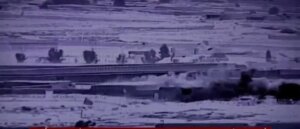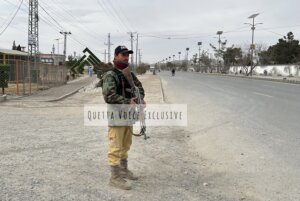Syed Ali Shah:
Nestled deep in the midst of rugged mountains, Hanna lake Quetta has dried up as drought spreads across Balochistan. The lake, which is considered to be a famous tourist point is now giving a deserted look. Cracks appeared in the lakebed as a result of no rainfall in this part of the country. Dead fish and wrecked boats are lying on the shore of the lake.
“Global warming and fewer rains are the main reasons behind turning Hanna lake into a desert”, Amjad Rasheed, a well-known environmentalist tells Daily Quetta Voice. Despite this all, scores of tourists were roaming the lake to enjoy pleasant weather. “We are here to enjoy this pleasant weather”, Ikramullah Khan, a young tourist said. Mr. Khan stated that the authorities should take benefit of this situation and start cleaning the lake.
Also Read: Quetta: Hanna Lake turns into a desert
The scenic beauty of Hanna lake attracts tourists
The scenic beauty of the lake attracts tourists from Balochistan and across the country. “Weather is cold and we pray for rainfall to see water inside the lake”, Hyder Abro, a tourist from Jaccobabad Sindh said. Mr. Abro was leading a family from Sindh Jacobabad to enjoy cold pleasant weather in Hanna lake, nestled deep in the midst of rugged mountains.
Quetta and most parts of Balochistan are under the clutching of severe drought. Most green parts in the province have turned into deserts recently. The drought-hit-like situation has forced growers to cut green trees in Pishin, Mastung, Kalat, Killa Abdullah, and other parts of the province.
“Lake dried up but tourists are still coming”
“Lake dried up but tourists are still coming”, Muhammad Ajmal, a tea stall owner on the edge of the lake said. A crowd of tourists was sipping tea outside the tea stall.
Every evening, traditional Pashto music reverberates in the valley. Youngsters coming from various parts of the province were dancing to traditional music to enjoy the cold weather.
British rulers constructed Hanna lake in 1884. The major objective behind this was to maintain depleting water table, promote tourist activities, and agriculture purposes, and a place for birds and livestock.






